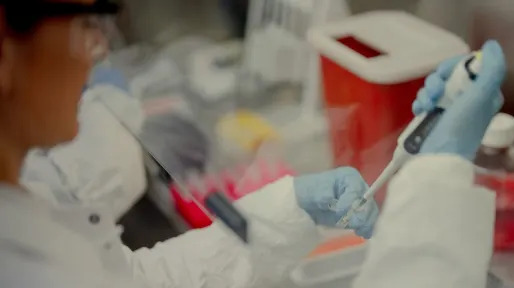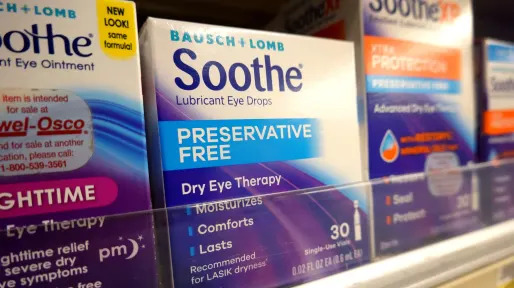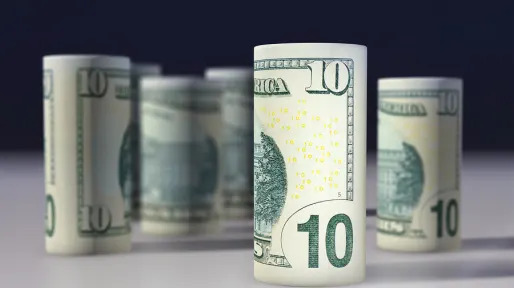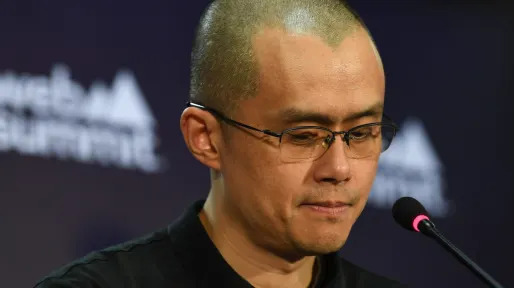

A Harvard genetics professor who only sleeps 6 hours a night and doesn’t exercis...
source link: https://finance.yahoo.com/news/harvard-genetics-professor-only-sleeps-160130635.html
Go to the source link to view the article. You can view the picture content, updated content and better typesetting reading experience. If the link is broken, please click the button below to view the snapshot at that time.

A Harvard genetics professor who only sleeps 6 hours a night and doesn’t exercise every day swears 3 habits helped reverse his biological age by a decade
David Sinclair keeps a relatively strict daily schedule to stay healthy, which includes green matcha tea, polyphenols in a couple of spoonfuls of yogurt in the morning, and an occasional bite of 80% dark chocolate.
But Sinclair, a 54-year-old professor in the Department of Genetics and co-director of the Paul F. Glenn Center for Biology of Aging Research at Harvard Medical School, isn’t rigid about everything.
He doesn’t exercise every day nor sleep more than six hours a night usually, he tells GQ in a recent interview (standard guidelines recommend between seven to nine hours of sleep each night and 150 minutes of moderate-intensity exercise per week).
Still, he says his regimen has helped him stay biologically 10 years younger than his age—underscoring a modern phenomenon called reverse aging by combating age-related disease and decline.
“I think a lot of us think that when you’re in your twenties, you’re impervious to aging and illness, and what we now know is that the epigenetic clock starts ticking from birth and that what we do in our twenties does affect our ultimate longevity,” Sinclair tells GQ.
While research on delaying and reversing aging is relatively new, experts say it concerns your epigenetics. Longevity experts have outlined the 12 hallmarks of aging, including epigenetic alterations, cellular senescence, and chronic inflammation. Lifestyle factors and other interventions targeting one or more of these hallmarks may delay the aging process.
“Biological age is a much better representation of health status than birthday candles,” Sinclair previously told Fortune. “Birthday candles don’t tell you how well you’ve been living and they certainly don’t tell you how many years you’ve got left.”
He believes that we’ll one day be able to turn ourselves back 20 years. “I don’t see any reason why that won’t be possible,” he continued. “It’s just a question of when.”
So what is Sinclair’s secret to aging well and staying young? He began working on it in his early thirties. Here are the three ways the longevity researcher got started:
 Fortune
FortuneShake Shack founder, who once called tipping ‘one of the biggest hoaxes ever pulled,’ says there’s no obligation ‘whatsoever’ to do it for drive-thru anything
Danny Meyer addressed the “guilt-tipping” that plagues many Americans today.
8h ago Benzinga
Benzinga'They Just Stopped Buying': Bud Light Is Now Selling For Less Than Water In Some US Warehouses, But Is BUD Stock Too Cheap To Pass Up? 1 Reason To Pick It Up Now
Bud Light has been fighting an uphill battle since it partnered with transgender social media influencer Dylan Mulvaney in April. While Mulvaney has 10.6 million followers on TikTok, the collaboration triggered a backlash on social media and led to a boycott by some beer drinkers. The New York Times recently reported that at Glenn Miller's Beer & Soda Warehouse in Lemoyne, Pennsylvania, a 30-pack of Miller Lite was selling for $24.99. In contrast, a 30-pack Bud Light was priced at just $8.99 aft
11h ago Benzinga
BenzingaKevin O'Leary Challenges Elon Musk's 'Immoral' View On Remote Work — 'They Ain't Coming Into The Office, Period'
Kevin O’Leary, renowned investor and star of "Shark Tank," has challenged Tesla Inc. CEO Elon Musk‘s controversial assertion that working from home is “immoral.” O’Leary, who oversees a vast business empire consisting of 54 companies, has expressed his support for remote work and rejects any notion of immorality associated with it. Musk, the influential figure behind Tesla and Twitter, recently launched a scathing critique of remote work, questioning its ethical implications. He argued that whil
12h ago Investor's Business Daily
Investor's Business DailyBiogen Snags Full Approval For Alzheimer's Treatment; Shares Halted
The FDA fully approved Biogen's Alzheimer's treatment, Leqembi, on Thursday. Biogen stock was halted in late trading.
7h ago The Wall Street Journal
The Wall Street JournalFDA Approves Leqembi, Extending Alzheimer’s Treatment to More Patients
A treatment for Alzheimer’s disease is on its way to many more patients across the U.S. The Food and Drug Administration on Thursday granted full approval to Leqembi, allowing Medicare enrollees to get fully covered treatment with the drug if they qualify and agree to report data to a registry. Most of the six million people in the U.S. with Alzheimer’s are eligible for Medicare.
5h ago Fortune
FortuneA vitamin K-rich diet may help protect your health as you age. Experts suggest these 9 foods
Vitamin K may help prevent coronary heart disease and cancer.
2d ago Investor's Business Daily
Investor's Business DailyIs Pfizer Stock A Buy Or A Sell On New Challenges In Obesity Treatment?
Is Pfizer stock a buy or a sell after scrapping its once-daily pill for obesity treatment? Is PFE stock a buy or a sell right now?
7h ago Barrons.com
Barrons.com4 Big Pharma Stocks On Sale Right Now
The key is to buy a basket of the cheap ones, so that gains in a few of them can offset disappointing performance in others.
13h ago Investor's Business Daily
Investor's Business DailyIs Moderna Stock A Buy As It Doubles Down On Its Cancer Vaccine Efforts?
Is Moderna stock a buy after unveiling new results for its Merck-partnered cancer vaccine? Is MRNA stock a buy today?
12h ago Zacks
ZacksCan Eli Lilly's (LLY) Continue its Ride on Obesity Drug Wave?
Lilly (LLY) continues to raise the bar on obesity drugs as latest data show that participants treated with these experimental drugs achieved mean weight reduction of up to 24%.
2d ago Fortune
FortuneThe Cancer Moonshot could give us miraculous new cures–but what good is it if patients can’t pay the bus fare to get treatment?
American medicine.is proficient at making scientific breakthroughs–but the experience of cancer care is actually getting worse.
2d ago Investopedia
InvestopediaBausch + Lomb Buys Blink Brands to Expand Eye Drop Portfolio
Bausch + Lomb purchased Blink brands from a J&J subsidiary for $106.5 million to expand its over-the-counter offerings.
7h ago Benzinga
BenzingaBausch + Lomb Expands OTC Eye Care Portfolio, Acquires JNJ's Blink
Bausch + Lomb Corporation (NYSE: BLCO) has acquired Johnson & Johnson's (NYSE: JNJ) eye and contact lens drops brand Blink for $106.5 million to bolster its position in over-the-counter (OTC) consumer products for eye care. The deal marks its second in two weeks to bolster the contact lens maker's portfolio of eye care products. The Blink portfolio of eye drops consists of various eye drops and contact lens rewetting drops that provide immediate and long-lasting symptom relief. According to a 20
9h ago AP Finance
AP FinanceAlzheimer’s drug Leqembi has full FDA approval now and that means Medicare will pay for it
U.S. officials granted full approval to a closely watched Alzheimer’s drug on Thursday, clearing the way for Medicare and other insurance plans to begin covering the treatment for people with the brain-robbing disease. The Food and Drug Administration endorsed the IV drug, Leqembi, for patients with mild dementia and other symptoms caused by early Alzheimer's disease. It’s the first medicine that’s been convincingly shown to modestly slow the cognitive decline caused by Alzheimer's.
7h ago Zacks
ZacksModerna (MRNA) Initiates Rolling BLA Filing for RSV Vaccine
Alongside the FDA filing, Moderna (MRNA) submits similar filings in Europe and Australia, seeking approval for using its RSV vaccine in older adults aged 60 years and above.
13h ago Zacks
ZacksSarepta (SRPT) Sells Priority Review Voucher for $102M
Sarepta (SRPT) sells its priority review voucher that was awarded following the FDA's approval to Elevidys gene therapy for treating DMD. The company will invest these proceeds into R&D.
13h ago Reuters
Reuters'Stoneos' cannabis cookies look too much like Oreos, says US FTC
WASHINGTON (Reuters) -Six companies that make snacks with the active ingredient of cannabis have been sent cease and desist letters because the packaging looks too much like foods that kids love, including "Stoneos" that mimic Oreo cookies, the U.S. Federal Trade Commission (FTC) said on Wednesday. The letters were sent by the FTC and Food and Drug Administration (FDA) over concern that children may want to try them, the FTC said, including products that could easily be mistaken for Doritos tortilla chips, Cheetos cheese-flavored snacks, and Nerds and other candies. The products included "Double Stuf Stoneo", marked as made by "Dabisco", and "Jolly Rancher Gummies Sours", as well as "Cheetos Crunchy XXTRA Flamin' Hot."
1d ago Benzinga
BenzingaAmericans Forced To Delay Medical Care As Costs Skyrocket In Healthcare System
Americans are skipping some types of medical care because it's so expensive, according to a recent Federal Reserve report. The Fed's "Economic Well-Being of U.S. Households," 28% of respondents had to forego some form of medical care in 2022 because of the high costs involved, marking a 4 percentage-point increase from the previous year. Among the medical services that were frequently skipped, dental care topped the list, followed by doctor's visits, prescription medication, follow-up appointmen
1d ago Zacks
ZacksAmneal (AMRX) Shares Down on CRL for Parkinson's Disease Drug
Amneal (AMRX) suffers a setback as the FDA issues a complete response letter (CRL) to its new drug application (NDA) for IPX203 for treating Parkinson's disease.
2d ago Fortune
FortuneBinance plunges into crisis as senior execs quit over CEO Changpeng Zhao’s response to Justice Department investigation
Senior members of Binance’s legal and compliance team left the company this week.
7h ago
Recommend
About Joyk
Aggregate valuable and interesting links.
Joyk means Joy of geeK